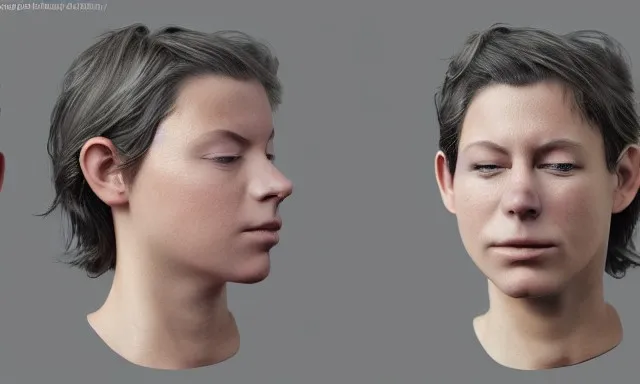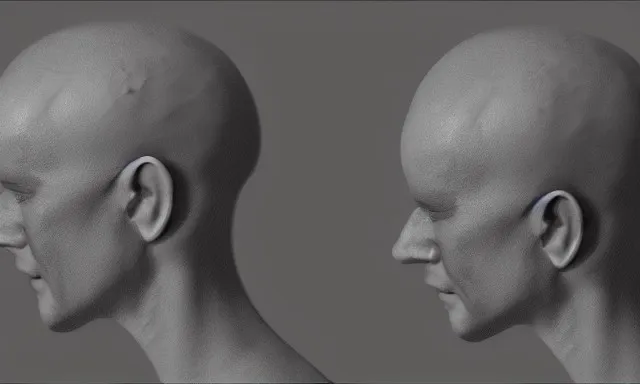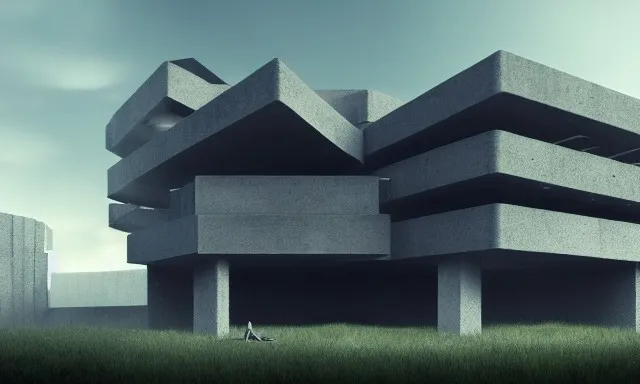
by SIMON P MURPHY
I was raised in a Christian denomination called Roman Catholicism. Despite this influence, I had no understanding of what a religious outlook meant. Frankly, I had no idea I was participating in a religion, nor did I have any idea that I was ensconced in a denomination within that religion. It was just the world around me, like the sky, the grass, and neighbourhood cats.
I did suspect that there was probably something very deep and meaningful behind all of the imagery present in church. There was something inscrutably mysterious about Jesus hanging on the crucifix up behind the altar, his smooth white limbs pinned to beams of wood, his gaze directed steadily toward the sky.
Since I was an attendant of a Catholic church as well as the attached school, I had no formal exposure to other religious or spiritual systems. In a world predating the Internet, my education was limited to the school library. My world was fairly closed in that regard. There was no competition for explanations of the world.
I have no doubt that you would find this kind of cloistered childhood environment, accidental or premeditated, represented in nearly every religious tradition of the world. The closed nature of this education was not unique to any form of Christianity. From the earliest age, I felt a calling to deeper understanding that I find difficult to express in words.
That a faith should outgrow its parent religion now seems to me as natural as that love should outgrow the bonds of its limitations. This is why Buddhism has an image of using a raft (symbolizing methods, techniques, and religious instruction) to cross to the other shore, only to let the raft go once it has served its purpose.
There was a hymn that resonated with me in childhood. It presented the imagery of leaving one’s boats behind on familiar shores, and setting the heart across the deep. This metaphorical imagery was profound to me in value. It was one of the first times I felt the pull of mysticism hidden amongst the ordinary. I realised even from within the confined structure of Roman Catholicism there was suggestion of something so deep and valuable that even that which was conventionally accepted would need to be left behind in order to come into contact with that which was true.
It was like a crack of mystical light shining though the otherwise banal woodwork. This is a theme that would follow me for decades, and an attitude of reverence and mystery that accompanied me into my much later readings in the Buddhist tradition, where I started to learn more about the role and function of an authentic teaching. Such a teaching doesn’t exist purely in and of itself – in order to close the circle, it requires one who is ready and willing to attend the lesson, to listen with every fibre of one’s being as though one’s soul was filled with nothing but eyes and ears.

I would like to share two significant spiritual experiences from childhood that suggest to me that the there is a universality in divine symbology, comprehensible even to a child instructed in limited ways. It may also point to prior existences or learnings. In any case, the point I would like you to remember is that my spiritual education was limited to the mythology presented in Christianity, specifically the version espoused by the Roman Catholic Church. I didn’t even know there were alternative views. That was the cultural framework with which I had to understand what I heard, read, saw and experienced as a child.
I did, however, have television.
There was a critical moment in an animated movie I watched. I believe my age would have likely been four or five. I never usually knew what was happening in movies because I have never had a particularly good attention span. What happened in this movie was that a young boy was stabbed by a sword at sea, on a boat. His lifeless body fell into the water, surrounded by ribbons of red blood. I remember this scene filling me with such a deep sadness as I related to the boy, wondering what it would mean to me and my family if such a thing were to happen to me.
A later scene toward the end of the movie showed the opening of the petals of a flower, and inside was a baby. I had no idea what the movie was about, but I understood intuitively at that moment that this same boy had been reborn into a new form. I suddenly knew the heart of reincarnation without terminology, instruction or cultural framework. It was as clear as watching a new dawn, or hearing the clear peal of a bell. It is difficult to describe what arriving at such an understanding is like, particularly when there is no pre-existing spiritual or religious framework to assimilate the experience. It was, and still is, one of the most profound and spiritually resonant experiences of my life.
The other experience was also due to watching a movie, in this case ‘The Dark Crystal’ on television on Christmas Eve. I believe I may have been between five and six years old. From the opening credits of that movie, I was utterly engaged and entranced. It was as though some vital instructions from the distant past had been set up to examine everything that was to follow in full awareness.
Again, lacking any of the framework which I now see clearly laid out in other traditions, I came across a profound experience of what seemed a soul-level comprehension. As the movie concluded, there was presented what I now recognise as the very distinctively Eastern, very substantially deep Advaitic notion that the duality present in the world expressed in the polarity of good versus evil is actually due to a vital division at the core level of our being.
Insofar as childrens’ movies are concerned, we were typically fed on the standard narrative about the battle between the forces of good and evil, with good always prevailing, and any other result being a kind of sacrilege or a cause for nihilistic despair. The message of ‘The Dark Crystal’ was categorically different, and it left me speechless – really in a state of what I would describe as transcendent awe.
It wasn’t preaching the usual polarity of good versus evil, it was suggesting that the reason there was even a split into this apparent duality was due to a fundamental wound, a core separation. It was further suggested that the healing of this rift not only collapsed the apparent duality of good and evil, but restored to its natural state that which was itself neither intrinsically good nor evil, but whole and therefore inclusive of every possible expression.
Now, I could never hope to explain this to anyone as a child, because I didn’t have the words, only the realisation – but the understanding of the concept of nonduality had shaken me to my core. I believe these two experiences were necessary to awaken me to a lifelong gravitation toward the mystical traditions in which I found gentle directions homeward to that which can never be satisfactorily expressed in words.
There is a point of spiritual maturity at which we forego our preoccupation with good and evil and begin to level our gaze toward wholeness and completion.
It is the stamp of a parent’s spiritual integrity that they give their child permission to find their own path to the truth. To fail to do so speaks to a level of relative immaturity. I had many childhood friends who were home-schooled because their parents did not want their intended course of development to be affected by alternate viewpoints or ‘negative influences’. For the most part, those friends were successfully indoctrinated into adulthood views resembling the closed and limited views of their parents.

I remember well the rationale woven into the mindset across families at the time. It was always some form of: ‘we have been reassured that our views are correct, because the word of God as presented in the Bible is infallible, therefore we reserve the right to override our childrens’ choices and freedoms on the authority of superior access to knowledge. The value of this is that we are only sparing them from error in advance, since any movement away from the path will be error, so in restricting their freedoms we are actually giving them the highest service of love and care’.
Only a lack of faith and a disrespect for human freedom would insist on a child’s staying put in a servitude of blind devotion. Yes, these parents love their children and want what is best for them. This is not a guarantee that they are seeing clearly. Even when superficial systems of inquiry are promoted, one is encouraged to arrive at the ‘right’ answer. Perhaps the reason that fundamentalist religion in every form the world over is so offended by the principle of evolution by natural selection is not so much that it removes the role of a creator, but more that it implies that some form of change might be central to the function of reality.
What could offend a fundamentalist religion more? It consists of an ideology of belief structures which are so fragile, and are up against the weight of the entire universe which is a spiritual masterclass in change itself. Such an ideology is dead and fixed, not fluid and alive, and the significance of this is that you have to work with a system that is completely incongruent with the fabric of reality. This is why those systems of belief must be endlessly promoted and reinforced through indoctrination (our ideas must be right, discard your objections), evangelism, browbeating and wrongheaded pressure to procreate.
Imagine being told that you should morally be bringing another life in the world just as another vector for ignorance and unconsciousness to survive in some form. The value of that life is not intended to be a loving celebration of life and freedom, but a pawn of flesh and bone. It is a powerful trance indeed that would convince a parent to bear children with the lowest, most shadow-enshrouded motivations and still dress it up as obedience and sanctity. To forbid abortion is a perversion of the same reasoning.
Which is not say that such a tradition cannot be composed of beautiful, kind-hearted people, and genuinely loving families. I have found such people in all walks of life. These people are often natural mystics. The knowing of divine truth is not upended by any religious or doctrinal brutality inflicted upon them. Perhaps they can only have continued to survive under such conditions because they have found the means by which their souls find nourishment from within. Perhaps they are divinely called to serve in such dark corners of the world to support similar growth in others.
I remember meetings in which people who had decided to leave were renounced. Different members of the church would have the opportunity to voice what they believed were the persons shortcomings as a Christian and a church member, and I remember feeling that there was a great sense of fortitude amongst the church, establishing who they were defined as, as opposed to who they were not. The ostracizing of the outgroup is in the same movement the building up of the in-group, and everyone felt very cohesive, righteous and proud.
This is a clear example of the ego’s masterful illusion of seeking to establish a sense of unity through separation, or other-making. It may look cosy on the surface, but it is poisonous. This is because in exchange for the precarious sense of cohesion it affords, it demands a human sacrifice. The same thing is ubiquitously present in modern social politics. You are cajoled by your peers to throw the least of your brothers under the bus so that you can feel a fleeting sense of unity.
It is said that the devil’s greatest trick was to convince mankind that he did not exist. I do not think this is very clever at all, and I would have to admit that I think the devil would be far more nefarious in his approach. I think it would be more accurate to suggest that the greatest trick the devil could ever play would be to so convince people that they are on the side of truth, good and righteousness, that they are prepared to close their hearts and minds to those who occupy perspectives different from their own.
The people who either left the church group or were excommunicated were openly decried and generally not tolerated to be spoken to again by other members, even though most remained committed to the Catholic faith. You will find the same blindness in groups the world over, religious or otherwise.
We aren’t talking about good versus evil, right versus wrong. We are talking about educational levels not being universally applicable. And no, I am not claiming that one life philosophy or religious tradition is kindergarten whilst another represents university. My experience has been that wherever you find yourself, in whichever time or space, you will unfailingly find the highest level of education available to you, as befitting your needs.

I believe the syllabus of these educational needs are often far more complex and occluded than we are privy to at the human level. I would never assume someone is either unsophisticated or indifferent to their soul’s education because they adhere to one system versus another, nor would I assume another to be advanced for the same reasons.
Both fools and wise men wear exceptionally convincing disguises in this world.
One of the most prolific theologians of the west, Thomas Aquinas, was an example of a prodigiously educated mind who speculated on the nature of the divine for a lifetime. By some, he is seen as a sainted father of the Catholic faith, a Church Doctor and master theologian whose work is mentioned in the same breath as Aristotle and Plato. Others, particularly those of a more mystical than philosophical persuasion, might be inclined to say that such a person may have been little more than a windbag for most of their life.
Towards the end of his life, however, Aquinas effectively retracted his theological views. He indicated that nothing he had said about anything had touched upon the truth and that all we could know about the divine could not be formulated in words, and in doing so, he took a vow of silence that reputedly lasted the remainder of his life.
I have come across few consistencies in this strange universe, but one of them is that all things contain at their core a valuable lesson, whether a relationship, a miracle, an illness, a disaster, a birth or a death. The opportunity to learn (or unlearn) is never absent. Another is that all things are in a state of constant flux – everything that arises will also pass away. The third is that there is no situation in which waking up to your true nature is anything but beneficial.
You may not like it, you may not be ready for it yet, you may not want it at all – but the path of awakening to truth and setting foot on the path of the Dharma can only bring medicine to the soul.
You could assemble a symposium of the brightest minds on the planet arguing why a plant shouldn’t thrive on sunlight, but this would not impact one single plant’s most fundamental requirement for sunlight. Waking up to your true nature is no different. You can wake up in a church, a mosque, a kindergarten or a psychiatric hospital. There is no prescription for what that should look like, or how that should pan out over the course of that lifetime.
In my own experience, it has been a little like the mind over the course of a lifetime was caught within an artificial hurricane in a cylinder with a separate person in the middle being hit by thousands of chunks of debris hurtling around at tremendous speed.
The noise and chaos force you to cringe, cower and spend your time covering your most sensitive areas, including of course your eyes. You might think such a situation would be like hell, but if you didn’t know any different for 20 or 30 years, it would just be assumed that that was the way things are. Then one day, in some unpredictable and graceful moment out of time, the power to the hurricane machine is suddenly switched off. It just happens – you didn’t do it.
Then, all of the debris that has been flying around punishing you and attacking you loses its momentum and falls to your feet. What would you think, or feel, or conclude if that happened to you? There are no accurate words here. We have all had this revelation to some degree, it is just a matter of how it has caught your attention. You tend to notice it very clearly if you have been involved in turbulent suffering and discord. Other times it will just casually drop in uninvited.
The point is, once you settle into what this realisation has to offer, everything changes. Your entire outlook of reality changes, from the ground up. Now you are looking at a world that was not designed to cause you suffering. How could that even be possible?
You change by degrees at the very centre of your mind and your heart, with no effort on your part, only a willingness and an availability. All of those vulnerable and sensitive areas of your body (yes, including your eyes) are no longer in danger, and so inch by inch, you begin to trust that you can correct your posture of cowering and uncover your eyes. Now what does the world look like?
You are tasked with the discovery of something of critical importance in this world.
I will continue to be drawn to the Sun-like beauty of truth until breath leaves this body. I will continue to explore the depths the great teachers pointed to, even if only through the silence of my being. Beyond that, I neither need nor ask for knowledge, because the light they speak of, the same light I speak of, is unmistakably present here and now. Place your trust in what is real, that which echoes through the halls of your being. You can be very surprised by reality, even shocked, but you cannot be led astray by it.
Hold this lightly as you place a foot into the darkness.
The supreme intelligence inseparable from us is not here to brutalise us into compliance. Only we do that to ourselves, and we are consummate masters at it. It makes no difference which religion or lack thereof someone tells you they are. See the one who comes before you.
As the philosopher Douglas Harding put it so eloquently, to lack divinity is to lack being. This love that is here does not play by the rules we humans have set up – exclusion, denial of affection to manipulate, conditional love. This misunderstanding, this ignorance, is the source of the majority of self-created psychological suffering.
There are at least two things I know would be wrong for me to accept. Firstly, it is that there is anyone in the universe we should harden our hearts to, anyone who is not merely a messenger of the divine in a clever disguise. To accept this would be wrong-minded to me.
The second is that there is anything worth grasping onto for dear life, anything however true or noble, that is not ultimately worth letting go of into the ocean of Truth. Beautiful as they may be, they are all fingers pointing to the moon. They are all contrived means and methods of directing one home to reality.
Liberation isn’t partial, and it isn’t locked away in some imaginary future heaven for nice or obedient people – it is fully here, now, present and ongoing. We only come to it by meeting our present conditions fully and unreservedly. It is there for the just and unjust, the pure and impure. If it wasn’t, what would support reality? Upon what foundations would the universe rest?
*
Simon P Murphy is a Nelson-based esotericist and philosopher, and author of His Master’s Wretched Organ, a brilliant collection of weird fiction stories.
*
If you enjoyed reading this essay/article, you can get a compilation of the Best VJMP Essays and Articles from 2021 from Amazon for Kindle or Amazon for CreateSpace (for international readers), or TradeMe (for Kiwis). Compilations of the Best VJMP Essays and Articles of 2020, the Best VJMP Essays and Articles of 2019, the Best VJMP Essays and Articles of 2018 and the Best VJMP Essays and Articles of 2017 are also available.
*
If you would like to support our work in other ways, subscribe to our SubscribeStar fund, or make a donation to our Paypal! Even better, buy any one of our books!
